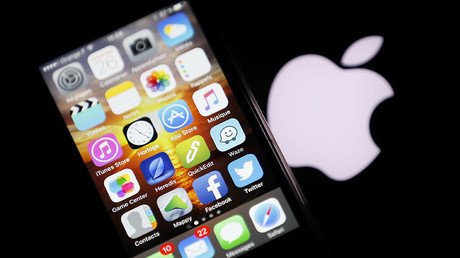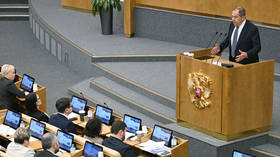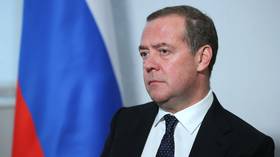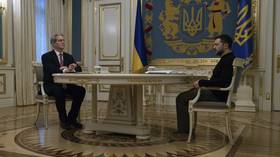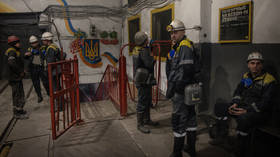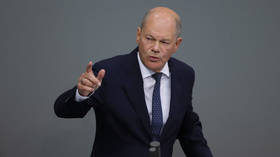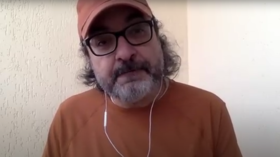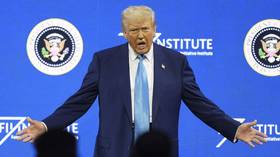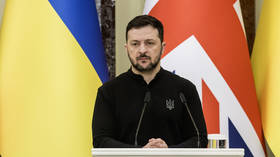DOJ brief in San Bernardino iPhone case 'sounds like indictment' - Apple
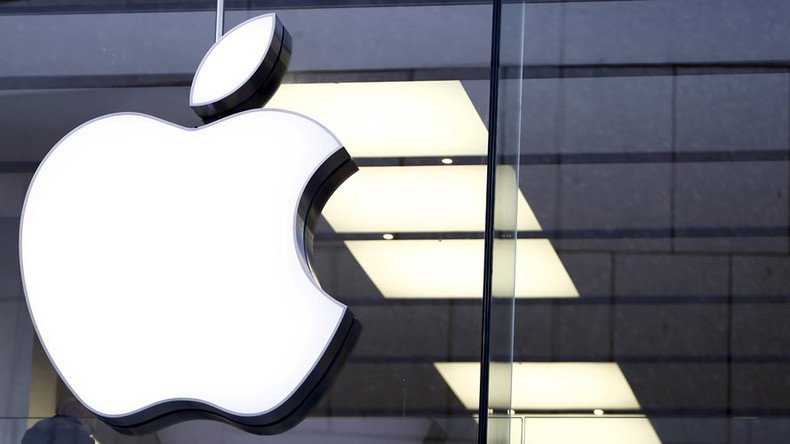
The Justice Department has accused Apple of "false" and "corrosive" rhetoric in a court brief over access to the work iPhone of one of the San Bernardino shooters. Apple said the brief contained false accusations and sounded like an indictment.
"Apple deliberately raised technological barriers that now stand between a lawful warrant and an iPhone containing evidence related to the terrorist mass murder of 14 Americans," the DOJ wrote in the filing.
Any software that Apple creates to break the encryption does not need to leave the company’s hands, the agency argued. The government is not requesting the source code to the iOS, or Apple’s electronic signature that allows software to run on its hardware. If Apple can guard these “keys to the kingdom,” the DOJ said, “it can guard this.”
The company would need to set aside as few as six employees, for perhaps as little as two weeks, to comply with the government demand, the DOJ argued.
“This burden, which is not unreasonable, is the direct result of Apple’s deliberate marketing decision to engineer its products so that the government cannot search them, even with a warrant," the filing said.
Responding to the government filing, Apple general counsel and senior vice president Bruce Sewell said that the "tone of the brief reads like an indictment."
"In 30 years of practice I don't think I've ever seen a legal brief more intended to smear the other side with false accusation and innuendo and less intended to focus on the real merits of the case," Sewell told reporters in a conference call on Thursday.
Sewell described the DOJ filing like "throwing pasta on a wall" and hoping something sticks, Reuters reported.
The original court order, issued in mid-February under the All Writs Act, does not invade anyone’s privacy and raises no Fourth Amendment concerns, the government lawyers argued.
"Apple desperately wants ‒ desperately needs ‒ this case not to be ‘about one isolated iPhone.’ But there is probable cause to believe there is evidence of a terrorist attack on that phone, and our legal system gives this Court the authority to see that it can be searched pursuant to a lawful warrant," the DOJ filing said.
"That is not lawless tyranny. Rather, it is ordered liberty vindicating the rule of law," it continued.
'Dangerous power' Apple tells court to vacate iPhone hack orderhttps://t.co/na54lHWi4ypic.twitter.com/V3TwIGICEa
— RT America (@RT_America) February 26, 2016
Since receiving the court order, the Cupertino-based company has argued that the government is seeking a “dangerous power” by forcing Apple to create software to hack into the iPhone, technology that it says would put the security of all its mobile products at risk.
However, the government argues that Apple has gravely mischaracterized the request.
"Apple’s rhetoric is not only false, but also corrosive of the very institutions that are best able to safeguard our liberty and our rights: the courts, the Fourth Amendment, longstanding precedent and venerable laws, and the democratically elected branches of government," the DOJ wrote.
The court is due to hold a hearing in the case on March 22.
